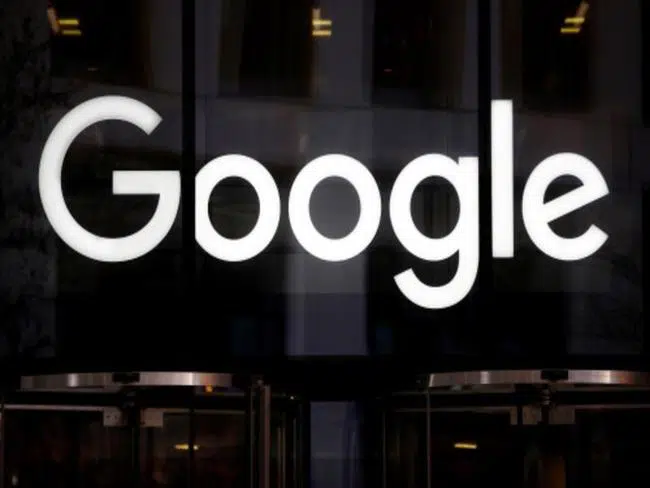Google Launches AI Edge Gallery App for Offline AI Processing on Android

Google has quietly introduced a new application, AI Edge Gallery, designed to allow users to run sophisticated artificial intelligence models directly on their mobile devices, notably without requiring an internet connection. This Android app, with an iOS version anticipated, marks a significant step towards making AI more private, portable, and accessible by enabling on-device processing for tasks such as image generation, answering questions, and even assisting with coding.
The core innovation of AI Edge Gallery lies in its ability to shift AI computation from cloud servers entirely to the user's device. This on-device intelligence means that all processing occurs locally, powered by the phone's own processor, eliminating the need for Wi-Fi or mobile data to utilize these AI tools. This approach offers several key benefits: enhanced data privacy, as user inputs and data remain on the device and are not transmitted to external servers, thereby reducing potential security risks; potentially faster performance, as there's no latency from waiting for responses from remote servers; and improved accessibility, allowing users in areas with poor or no internet connectivity to leverage advanced AI functionalities.
At the heart of this offline AI experience are compact yet powerful AI models from Google's Gemma family, such as Gemma 3 1B and Gemma 3n. The Gemma 3 1B model, with a size of just 529MB, is highly optimized to process an impressive 2,585 tokens per second, facilitating rapid natural language processing and text generation. These models support a variety of applications including smart replies, messaging enhancements, document summarization and analysis, code writing and technical explanations, and creative content generation. The app further integrates with Hugging Face, a leading platform for open-source AI models, allowing users to browse and import a rich repository of vetted tools directly. This functionality is built upon Google’s AI Edge framework, which includes technologies like TensorFlow Lite, a lightweight, mobile-optimized version of TensorFlow designed for edge computing, and MediaPipe, a framework that helps optimize media and vision-based machine learning models for real-time applications. Together, these technologies enable the app to function smoothly across a variety of devices, including mid-range Android smartphones, by providing efficient inference capabilities and hardware acceleration.
AI Edge Gallery offers an intuitive user interface with several built-in tools designed for ease of use. "AI Chat" provides a conversational AI interface that allows users to ask questions, get real-time answers, and hold multi-turn dialogues with the on-device model. The "Ask Image" feature enables users to upload an image and ask the AI questions about its content, for example, to identify ingredients in a photo of a meal. Additionally, "Prompt Lab" serves as an experimental zone or sandbox where users, especially developers or educators, can test one-shot or single-turn prompts, experiment with text-based actions like rewriting or summarizing content, and tweak model responses using templates, sliders, and presets. This is particularly useful for those wanting to explore prompt engineering.
Currently, AI Edge Gallery is available for Android devices and is in an "experimental Alpha release" phase. Google is actively inviting developers and users to try the app and share feedback to help shape its future development and roll out more features and improvements. An iOS version for iPhone and iPad users is confirmed to be in the works, though a specific release timeline has not yet been disclosed. Significantly, Google is releasing AI Edge Gallery as open-source software under the Apache 2.0 license. This not only encourages developers to contribute but also allows free use, modification, and even commercial deployment of the technology within their own apps or services without licensing fees, positioning Google as an advocate for transparent and community-driven AI development.
Google acknowledges that the performance of AI models within AI Edge Gallery will vary depending on the user's device hardware. Newer smartphones equipped with faster chips and more memory will generally handle the models more smoothly and quickly. Conversely, older or less powerful devices might experience lag or slower processing times, especially when running larger or more complex AI models. The size of the selected model directly impacts processing speed and overall user experience, so Google notes that selecting lighter models may be the best option for users on mid-range or older devices to ensure smooth operation even with limited resources.
The launch of AI Edge Gallery occurs amidst Google's broader ambitions in the AI landscape and increased industry scrutiny. For instance, the U.S. Department of Justice recently initiated a civil antitrust investigation into Google’s licensing agreement and partnership with AI startup Character.AI, over concerns the collaboration could sidestep federal merger regulations. By promoting decentralized, personal AI where users have full ownership of their interactions and data stays on the device, AI Edge Gallery may help shift the narrative. This initiative addresses modern challenges concerning data privacy, accessibility for users with limited internet, and customization through its open-source nature. It represents a potential turning point in how users engage with smart technologies, signaling a shift from cloud dependency to personal empowerment, where the phone itself becomes a self-contained AI hub. AI Edge Gallery offers a glimpse into the future of offline, privacy-first, and open-source artificial intelligence, and could become a cornerstone in Google’s strategy to decentralize AI and make it universally available, everywhere, no Wi-Fi required.
You may also like...
Diddy's Legal Troubles & Racketeering Trial

Music mogul Sean 'Diddy' Combs was acquitted of sex trafficking and racketeering charges but convicted on transportation...
Thomas Partey Faces Rape & Sexual Assault Charges

Former Arsenal midfielder Thomas Partey has been formally charged with multiple counts of rape and sexual assault by UK ...
Nigeria Universities Changes Admission Policies

JAMB has clarified its admission policies, rectifying a student's status, reiterating the necessity of its Central Admis...
Ghana's Economic Reforms & Gold Sector Initiatives

Ghana is undertaking a comprehensive economic overhaul with President John Dramani Mahama's 24-Hour Economy and Accelera...
WAFCON 2024 African Women's Football Tournament

The 2024 Women's Africa Cup of Nations opened with thrilling matches, seeing Nigeria's Super Falcons secure a dominant 3...
Emergence & Dynamics of Nigeria's ADC Coalition

A new opposition coalition, led by the African Democratic Congress (ADC), is emerging to challenge President Bola Ahmed ...
Demise of Olubadan of Ibadanland
Oba Owolabi Olakulehin, the 43rd Olubadan of Ibadanland, has died at 90, concluding a life of distinguished service in t...
Death of Nigerian Goalkeeping Legend Peter Rufai

Nigerian football mourns the death of legendary Super Eagles goalkeeper Peter Rufai, who passed away at 61. Known as 'Do...




